
Peter Walter, biochemist: ‘The ISRIB molecule could become a wonder drug’
The German scientist, in the running to win the Nobel Prize, believes that his experimental drug can rejuvenate the brain and reverse a multitude of diseases

The German scientist, in the running to win the Nobel Prize, believes that his experimental drug can rejuvenate the brain and reverse a multitude of diseases

Scientists are looking for biological markers that will shed light on the presence of the still-invisible disease as soon as possible, in order to develop preventive policies

A clinical trial shows the neuroprotective effect of lixisenatide, a GLP-1 receptor agonist. Its use during a year prevented patients from getting worse, in what has been described as limited but promising benefits
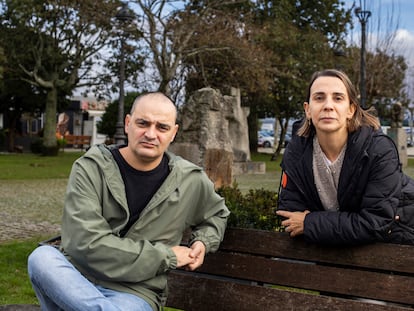
Spanish researchers discover an individual genetic variant that explains why a hereditary heart disease manifests very differently in two siblings
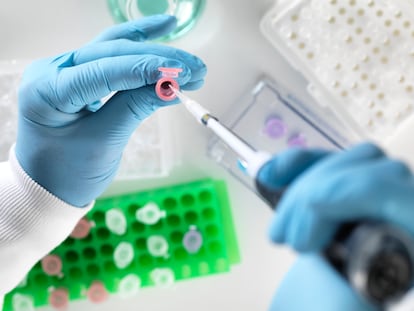
The ‘Nature’ journal selects the most promising ones coming next year, which could impact our health
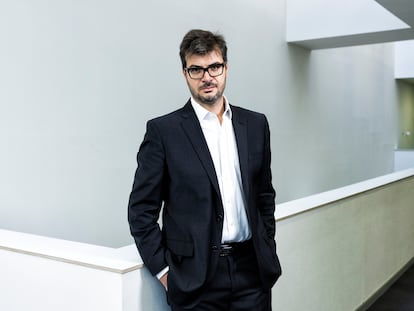
The transcranial magnetic stimulation specialist claims that the technique can help personalize treatments for various psychiatric disorders
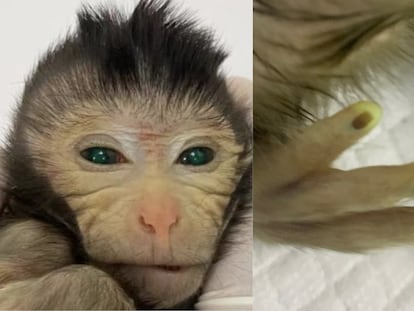
Spanish scientist Miguel Angel Esteban has joined forces with Chinese researchers to create a primate that has two thirds of its cells from another monkey embryo and could help with research on human disease, such as Alzheimer’s

Researchers directly stimulated the spinal cord, making it possible for the patient to avoid falls and freezing when walking
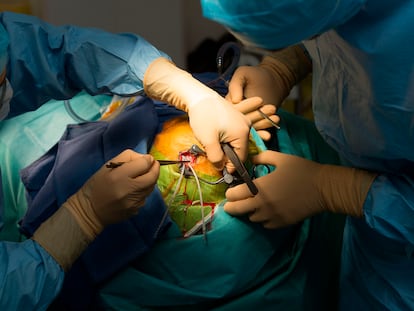
Temporal interference could provide an alternative to DBS, which has been very successful in some cases of Parkinson’s disease and epilepsy, but requires electrodes to be surgically implanted
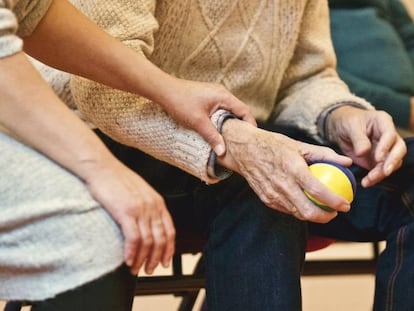
A study that followed nearly 500,000 people for over 15 years shows that those who report feeling lonely are more likely to suffer from the disease

These ‘glutamatergic astrocytes’ could play a role in understanding disorders such as Alzheimer’s, according to the scientists who have discovered them

Davis Guggenheim’s Apple TV+ documentary about the ‘Back to the Future’ actor’s rise to stardom also addresses his stubborn denial of the reality of Parkinson’s

In a conversation with EL PAÍS, the Indo-American doctor and writer reflects on the future of cancer treatment, as well as on the advances that have been made in the fight against Alzheimer’s and Parkinson’s
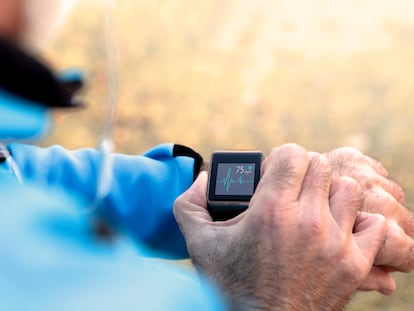
Accelerometers record subtle changes in movement and sleep patterns, and this information could anticipate the disease long before it becomes evident
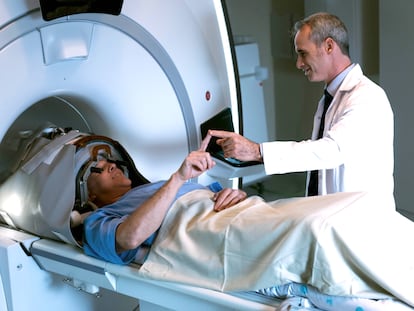
A study in monkeys and human patients shows how the blood-brain barrier can be crossed to allow the delivery of drugs that, in theory, could treat Parkinson’s and Alzheimer’s

The actor who played Marty McFly in the ‘Back to the Future’ trilogy has lived with Parkinson’s since 1991 and has raised $1 billion through his foundation to research the disease

In his memoir ‘No Time Like the Future,’ the actor recalls the last years of his career, how he kept working and incorporating the disease into his characters, and why he decided to retire in 2020